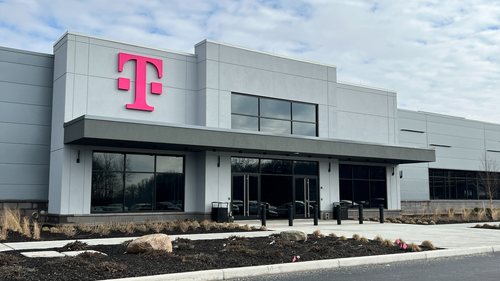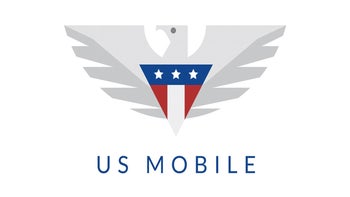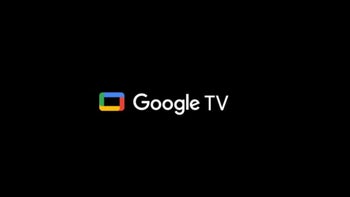What to expect from the "convergence" of Android and Chrome OS
This article may contain personal views and opinion from the author.

This was one of the more interesting pieces of news that came across the newswire today, not only because the idea that Android and Chrome OS might converge was an interesting idea, but because we here at PhoneArena had been discussing the possibility just this past weekend. Given the planned convergence of Ubuntu and Android, and the convergence of Windows 8 and Windows Phone, it seemed likely that Google would try to find its own path, and Chrome OS is the closest Google has to a desktop operating system, so it's the logical choice.
First things first, the story came out today that Google's VP of engineering, Linus Upson, told TechRadar that while Google is not working on a Chrome OS tablet, there are plans to slowly converge Chrome OS with Android. This matches Google's constant assertions that Android is for touch devices and Chrome OS is for devices with keyboards. Of course, more and more Android tablets are coming with keyboard docks, so the opportunity is certainly there to allow for some sort of convergence between the systems. As Upson points out, each major platform has different operating systems for mobile and desktop environments: Apple has iOS and MacOS, Microsoft has Windows and Windows Phone, and now Google has Android and Chrome OS.
Still, Chrome OS does have a target audience that could benefit greatly from its design. The magic sauce of Chrome OS is in the fact that it is just a browser, meaning updates are constant and automatic, something Android users envy at times. And, because it is just a browser, any web app written in HTML5, or built in Flash works perfectly on Chrome OS. There's no need for a new SDK, programming language, etc. Sure, there are a couple of Chrome specific options for developers, but in general, if you can build for the web, you can build for Chrome OS, and anything you build will also work in other HTML5 capable browsers. And, since the Chrome browser has recently become the most popular in the world, a lot of people are also building extensions for the browser itself, adding to the functionality.
The value in Chrome OS
Granted, Chrome OS hasn't seen much adoption yet, but the platform is more of a long-term investment than anything else. Living completely in the cloud is something that many consumers are still wary about. Not to mention, the Chrome OS software has been relatively young, unpolished, and flat out incomplete until just recently, and the Chrome OS hardware is still a bit overpriced, and scarce. Samsung just released its new Series 5 Chromebook, which is running the latest version of Chrome OS, codenamed Aura. Early reviews say that the hardware is nice, and the software is finally feeling like a real operating system with options for windowing, a desktop environment to complement the browser environment, and of course the launch of Google Drive allows for far better offline capabilities. Unfortunately, the Chromebook, which isn't a powerhouse although it runs what it needs to well, costs $500, which is more than most are willing to spend on a computer that runs nothing more than a souped-up browser.
And, the thing is that the vast majority of users already live inside their browser. Sure, Chrome OS can't do hardcore video, audio, or photo editing, but most people don't need to do any of that, and the casual options for video and photo editing that can be done either in YouTube or with web apps like Aviary or Google's editing tools (formerly Picnik) are good enough. And, that's really the point of Chrome OS, if you need the extra power, it isn't the option for you, but if what you need is "good enough", it could be a great option, if the price for hardware can come down. Add in the auto-updating, and it could be a great option for schools and businesses, as well as casual users.
Convergence
That brings us to the real issue: how exactly would the "convergence" of Android and Chrome OS work? Upson didn't give any real indication of what the plans would be, and in general, unless we heard it from Chrome VP Sundar Pichai, we're not even sure that work has begun in earnest on this project. We have heard other rumors that Android Jelly Bean would be a dual-boot system with the option to choose either Android or Chrome OS, but there has been no confirmation of that at all. Even so, this isn't exactly what we would point to as a sign of "convergence".
In our estimation, this "convergence" will be more to do with functionality moving from Chrome OS to Android rather than the other way around. Now that Chrome Beta is available for Android 4.0 devices, it's expected that functionality for the browser will continue to grow, meaning compatibility with extensions, and a start screen more like that of the desktop version with links to web apps. There is already syncing of bookmarks and tabs between all variants of Chrome, but the key here is that Chrome Beta is not Android, it is merely an Android app.
The difficult thing is in finding what exactly could converge between Android and Chrome OS. It's possible that the stock Android browser would get options to sync Chrome bookmarks, or that Chrome will become the default Android browser in future versions of the OS. This seems to offer the best path for convergence. If Chrome becomes the default Android browser, it would allow for more interesting options like adding Chrome web apps. The key seems to be with convertible tablets, which would be able to leverage a keyboard add-on and make the most of web apps in a way that touchscreens can't.
Going the other way is also a very tough proposition. As we mentioned, the key to Chrome OS is the automatic updates of the system, which is something that Android has struggled with. Granted, Chrome OS is 100% managed by Google, meaning there would be no manufacturer or carrier delays in updates, so it's fair to assume that the auto-updates may not be put in jeopardy with a convergence with Android. But, the only real convergence we could imagine going to Chrome OS would be in an added option to run Android apps.
The trouble here is that adding Android apps to Chrome OS doesn't make a whole lot of sense in many respects. Firstly, the addition of Android apps would de-emphasize the entire point of Chrome OS, which is in the power of the web. There's no reason to go to the ESPN website, or Twitter if there are apps that are easier and offer more functionality. There is a lot of value that could be added by offering apps like Skype, which is currently unavailable in any form for Chrome OS. Additionally, the abundance of games available for Android would be a huge benefit to Chrome OS where the availability of higher quality games is a bit scarce.
Of course, if that happens we would likely see the Chrome Store be folded into Google Play (which seems inevitable anyway), and maybe that's really the convergence that Upson is talking about. Google wants to be able to monetize the web in more ways than just ads, and web developers want to be able to monetize in different ways as well. There are already plenty of freemium games for Chrome, but having a unified payment system could go a long way to adding a viable paid market to web apps. The trouble there is that it would break the "power of the web" that Google loves so much, because buying an app via the Chrome Store could mean that the app would no longer be available to you in Firefox, which is not a very "open" way to go.
Conclusion
This is why we're thinking that the "convergence" will be more along the lines of integrating Chrome features into Android, and maybe even setting up the dual-boot environment that has been rumored, because any time you follow the logical line in adding an Android feature to Chrome OS, there are huge problems that pop up. Huge problems that essentially end up negating the need for Chrome OS all-together. If Google wants an always-updated system on hardware with a keyboard, Chrome is that solution. If Google wants Android to be a desktop OS, that possibility does exist, but it doesn't play well with Chrome OS, especially if Chrome OS is supposed to be leveraging the power of the free and open web.
source: TechRadar










Things that are NOT allowed: